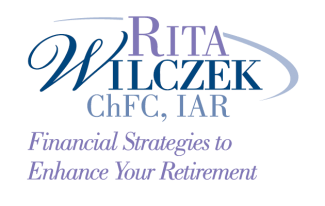Protection Against Uninsured Drivers and Could Assumptions Harm Your Retirement Strategy
by Rita Wilczek on Jul 18, 2019
Greetings,
Harbour Investments has assigned Nils Egge and me to be your advisor of records. Some of you may have received an email introduction from Cassandra Holstad (formerly Cassie Brose who worked with Michelle Harrington).
We have added you to our e-article mailing list to receive general info on timely topics, current conditions or happenings. These articles are not specific to your situation. We hope you them of interest. Take what you like and leave the rest. Rita
Protection Against Uninsured Drivers
Getting in an accident with the uninsured might be costly.
Provided by Rita Wilczek
About 13 percent of all motorists, or one-in-eight drivers, do not have automobile insurance.1
Having the misfortune of getting into an accident with an uninsured motorist may have serious financial consequences depending upon the state in which you reside and whether it is a “no-fault” or “tort” state.
In no-fault states, the law does not assign blame for an accident. As a result, each driver is reimbursed by their insurance company for any damages. In a “tort” state, insurance companies pay out claims based upon the percentage of fault assigned to each driver.
Any accident with an uninsured driver means no insurance reimbursement payment for their apportioned share of the damage. This can leave you holding the financial bag.
How to Protect Against Uninsured Drivers. Some states require drivers to take out insurance for uninsured (and underinsured) motorists. Where not required, it makes good sense to add that coverage to your auto policy.
You can buy protection against uninsured (and underinsured) drivers for both bodily injury and property damage. This coverage may also be valuable in cases where an insured motorist flees the scene of an accident without trading insurance information.
The first step to protect yourself against this potential financial risk is to contact your insurance agent to discuss your current coverage, applicable state insurance laws, and what you need to do to obtain protection against uninsured motorists.
Rita Wilczek may be reached at (952) 542-8911 or rwilczek@hirep.net
www.ritawilczek.com
This material was prepared by MarketingPro, Inc., and does not necessarily represent the views of the presenting party, nor their affiliates. This information has been derived from sources believed to be accurate. Please note - investing involves risk, and past performance is no guarantee of future results. The publisher is not engaged in rendering legal, accounting or other professional services. If assistance is needed, the reader is advised to engage the services of a competent professional. This information should not be construed as investment, tax or legal advice and may not be relied on for the purpose of avoiding any Federal tax penalty. This is neither a solicitation nor recommendation to purchase or sell any investment or insurance product or service, and should not be relied upon as such. All indices are unmanaged and are not illustrative of any particular investment.
Citations.
1 - cars.usnews.com/cars-trucks/car-insurance/uninsured-motorist-car-insurance [4/12/19]
Could Assumptions Harm Your Retirement Strategy?
Three common misconceptions to think about.
Provided by Rita Wilczek
1 – Assuming retirement will last 10-15 years.
Assuming you will only need 10- or 15-years’ worth of retirement money could be a big mistake.
2 – Assuming too little risk.
Holding onto your retirement money is certainly important, but so is your retirement income and quality of life. While overall inflation has been below 3% for most of the past 10 years, your personal inflation rate may be higher. In that situation, your dollar gradually buys less and less. If your income doesn’t keep up with inflation – essentially, you end up living on yesterday’s money.
For this reason, a flexible retirement strategy will likely factor in many situations and scenarios; you cannot plan for every single scenario, but considering many possibilities may give you and your financial professional numerous options down the road.
3 – Assuming you will be in excellent health. While it’s true that we lead healthier lives than our ancestors and that medical science and awareness of fitness and nutrition have improved and extended many American lives, that improvement doesn’t cover every issue that comes with advanced age. Extended-care issues can sap away retirement funds.3
Recent findings by the U.S. Department of Health and Human Services offer some perspective: over a quarter of all people who have turned 65 between 2015-2019 are probably going to need $100,000 of extended care, while 15% of that same group is looking at $250,000.3
For these reasons, a retirement strategy should include some thinking about paying for extended care of this sort. Yes, Medicare can help you with the basics, but an insurance strategy that can accommodate longer hospital stays and care should also be a part of your thinking.3
Remember that good strategies also change over time, and you will probably want some help along the way. Make time to discuss these common assumptions, and how to avoid them, with your retirement professional.
Rita Wilczek may be reached at (952) 542-8911 or rwilczek@hirep.net
www.ritawilczek.com
This material was prepared by MarketingPro, Inc., and does not necessarily represent the views of the presenting party, nor their affiliates. This information has been derived from sources believed to be accurate. Please note - investing involves risk, and past performance is no guarantee of future results. The publisher is not engaged in rendering legal, accounting or other professional services. If assistance is needed, the reader is advised to engage the services of a competent professional. This information should not be construed as investment, tax or legal advice and may not be relied on for the purpose of avoiding any Federal tax penalty. This is neither a solicitation nor recommendation to purchase or sell any investment or insurance product or service, and should not be relied upon as such. All indices are unmanaged and are not illustrative of any particular investment.
Citations.
1 - ssa.gov/history/lifeexpect.html [2/19/19]
2 - pbs.org/newshour/health/american-life-expectancy-has-dropped-again-heres-why [11/29/18]
3 - kiplinger.com/article/insurance/T036-C000-S002-how-to-afford-long-term-care.html [1/31/19]
